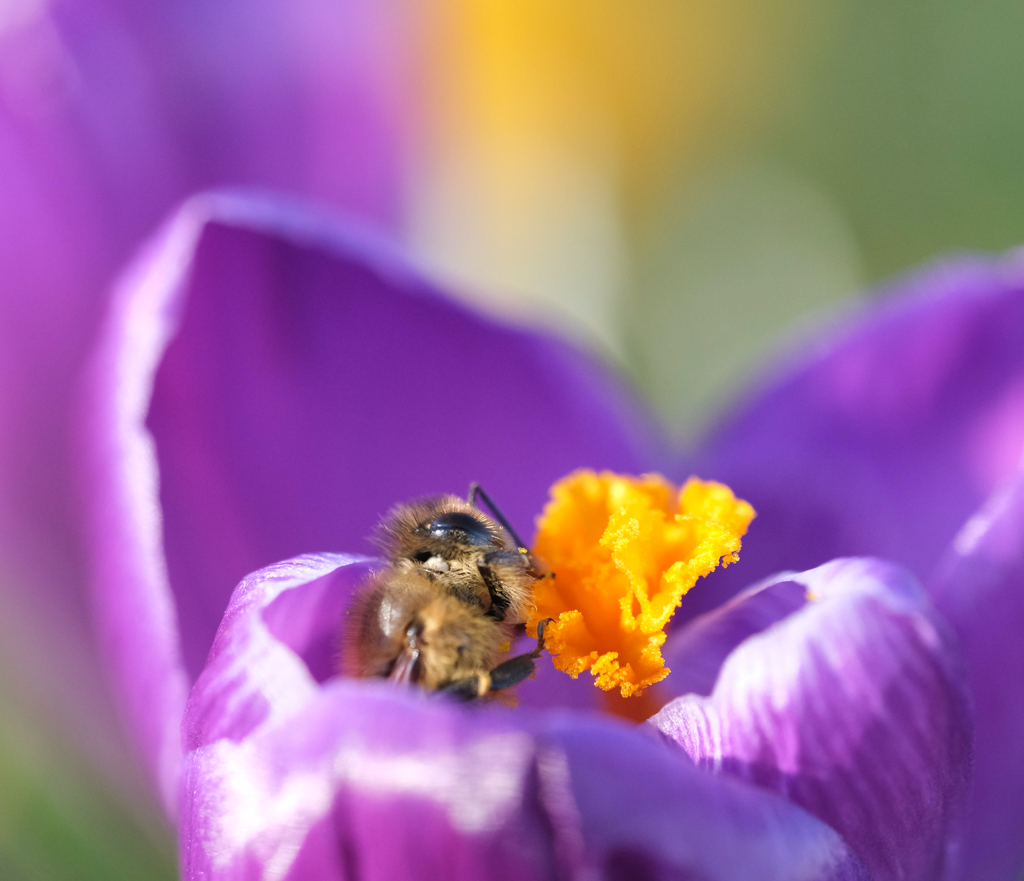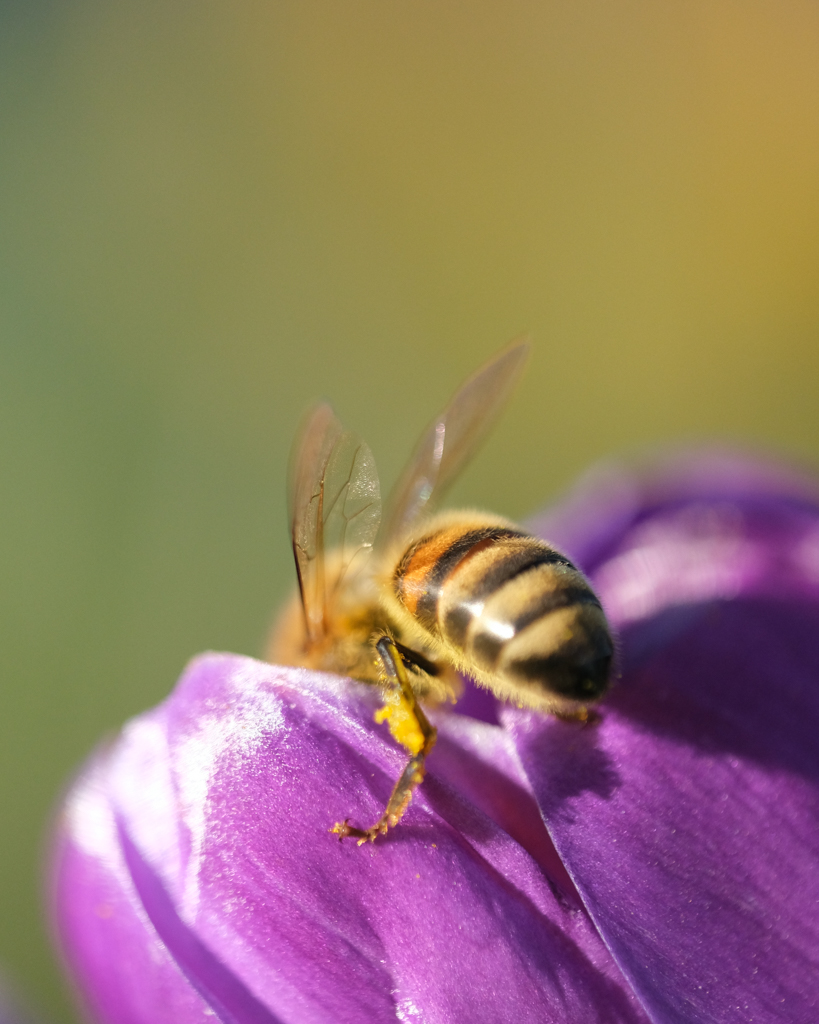Bees, Data, and Everyday Life
Bees are responsible for the pollination of <insert your favorite number here> percent of all agricultural crop.
Some website, at some time, somewhere on the internet.
If you are searching long enough, you can find every information you are looking for somewhere on the internet — and it’s tiring. Oftentimes, I want to answer a seemingly simple question (For how much pollination of agricultural crops are bees responsible?) and then I am occupied for the rest of the evening searching for some truth within a vast number of secondary sources. This post was supposed to be a short one about some evening photos of the first bees I spotted; instead it is a collection of thoughts about information on the internet, and the environment.
There is quite some stuff going wrong in this world and I think one of the causes is the complexity, variety, and multiplicity of available data. Thus, people who want to push their agenda can easily select, transform, or present data to support their point. Or just manufacture false data that becomes hardly distinguishable from ‘real’ data and blurs the line between fact and fiction. How scary this can get can be easily seen when looking at the election interference during the 2016 presidential election in the USA or the general data manipulation and surveillance in China. But also in everyday life, I find it increasingly difficult to make informed decisions because finding the best data is time intensive and one has to weigh up many different aspects:
You want to support the environment by avoiding plastic packaging? Sounds like a superb idea, but be prepared to invest some thoughts about the alternatives. Single-use glass and bottle packaging is probably worse due to increased weight and associated CO2 emissions. Cotton bags are too resource-intensive in their production. Paper packaging is even worse with respect to its carbon footprint and uses lots of wood- and water-resources. And in general: Is it even worth it when looking at the amounts of waste that is produced in the general economy? (However, you should definitely try it and also (if you are German-speaking) check out this.)
You want to stop livestock farming by going vegan? Also wonderful, but be prepared to closely question all of the substitute products which will in turn be wrapped in tons of plastic, destroy rain forests with their palm oil, and are shipped twice around the world. When looking at the health side, it becomes even more complex: Inconclusive studies with diverging results about how diets do or don’t influence your health depending on your physical condition, characteristics of your diet, and other factors. (However, you should also definitely do it because exploiting or killing animals surely cannot be the alternative.)
And then there is climate change in general: Can you justify to fly several times a year or that you to have two cars? Can you justify a large flat with enormous heating and electricity costs? And what is the most effective way as an individual to achieve a small CO2-footprint? Is it enough to pay for carbon compensation for these things? How does carbon compensation even work? And then there are the popular politicians who still believe in coal until 2038, drive off renewable energies to foreign countries, and do not care about the next generations that will inhabit the planet. We, as individuals, need to strongly adapt our lifestyle, and we, as a community, probably need to restructure our society to be prepared for the changes that are coming.
For now, I guess, I can only focus on some areas and try to progressively add more and more data, and thus more and more changes into my life that are based on informed decision and coincide with my moral and ethical values.
By the way, depending on how and where you are counting, bees are responsible for some of the pollination of agricultural crops, depending mainly on the crop itself, the trans-regional and regional context, the year of observation, and a multitude of other factors. Bees are also declining faster than ever before, however, it is also difficult to confidently quantify this decline. Depending on the country, research seems to agree that their yearly decline is from 10-50%. The following photos are from the first bees I spotted at one of the large intersections in my home town. I adore my macro-lens, the Fujinon 80mm f2.8, as well as the bees — they are wonderful.
And in compliance with all the other articles out there I was too lazy to include any sources for all of the claims here; you have to take the journey yourself and will likely arrive at different conclusions in the end.








Mit deiner Analyse der Situation stimme ich perfekt überein!!! Wie ändern? Fragen über Fragen, aber auf lokaler Ebene ist vieles möglich. Dein blog ist wunderbar! Ich mache gerne selbstgemachte Grußkarten aus schönen Fotos. R.
LikeLiked by 1 person
This is highly informative, and your English is impeccable. Congratulations in both respects. R
LikeLiked by 1 person
Thank you for those deep considerations on our intricate situation, but much more for the awesome photographies
LikeLiked by 1 person